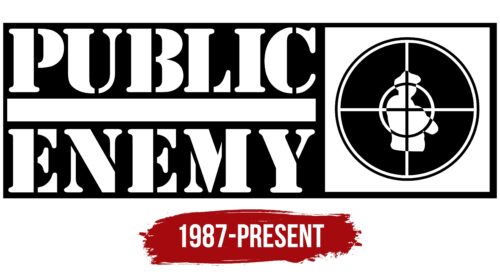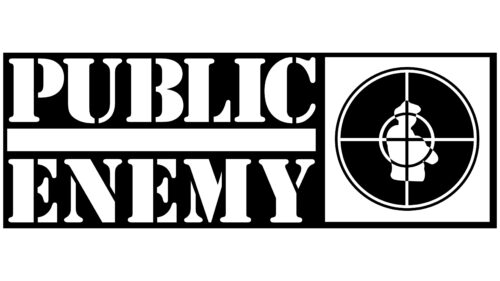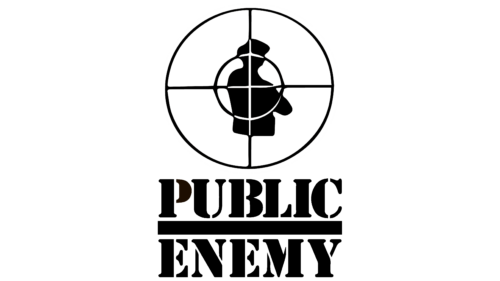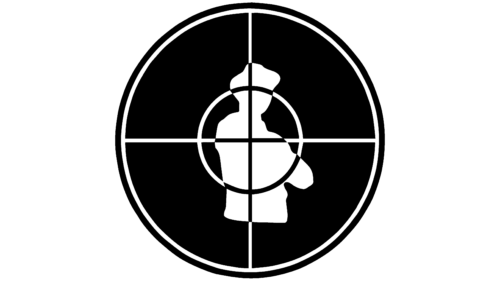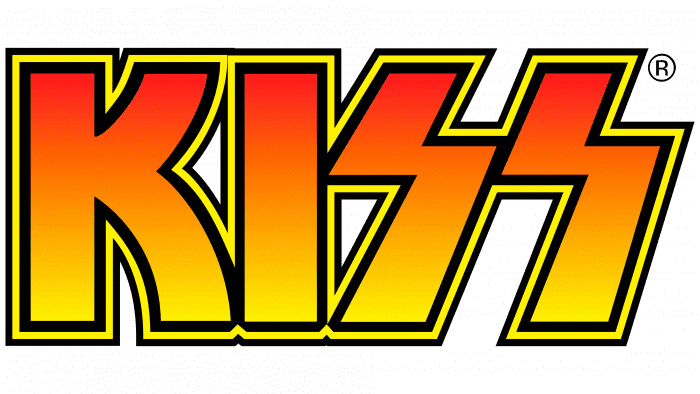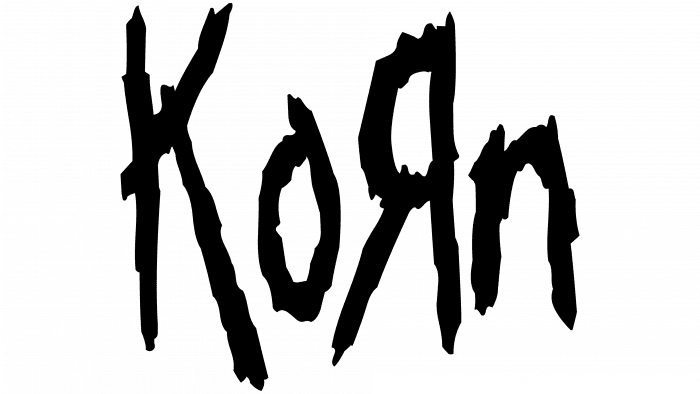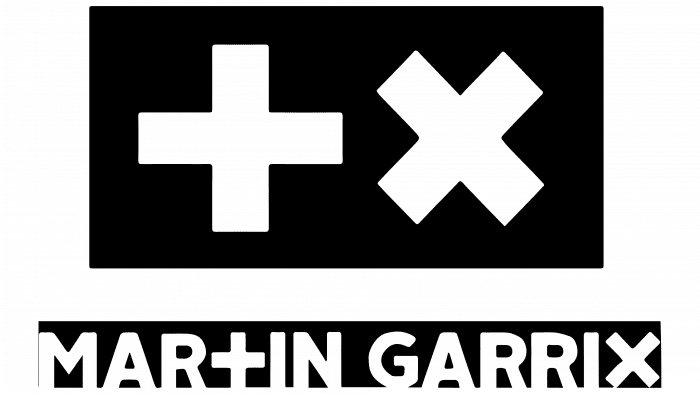The music group with the provocative name has a socially-charged Public Enemy logo. It is closer to military themes than to creative or glamorous ones. This is evident in the militaristic font, usually used to mark crates with military attributes, and the target is located on the right. The emblem directly reflects the political direction of the songs.
Public Enemy: Brand overview
| Founded: | 1985 – present |
| Founder: | Chuck D, Flavor Flav |
| Headquarters: | Long Island, New York, U.S. |
| Website: | publicenemy.com |
Meaning and History
The emergence of this music group is related to a student friendship: Chuck D (real name – Carlton Ridenhour) and Flavor Flav (William Drayton) met in the 1980s at Adelphi University in Long Island. To develop their abilities, they formed a group called Spectrum City. It was then that the aspiring performers recorded their first record, Check Out the Radio.
Later, Ridenhour nicknamed the track Public Enemy #1 because of harassment from the local population. This was the first mention of the name of the future legendary group. Moreover, Chuck D used it in every song even before the eponymous group appeared.
Previously, this term was widespread in the United States: in the 1930s, it was used to designate criminal and antisocial individuals who caused enormous harm to society. However, it did not originate in the United States but in Ancient Rome in 68 AD, when the Senate declared Nero “hostis publicus.”
What is Public Enemy?
Public Enemy is an American rap and hip-hop music group. It performs songs with political undertones and consists of four people. The members of the group constantly change, with only founder Chuck D remaining as a permanent member, who assembled it in 1985. The first studio album was released in 1987 and was called Yo! Bum Rush the Show.
1987 – today
The most influential and radical group (as designated by music experts) has only one logo. It appeared at the dawn of the group’s formation – on the cover of their debut album – and is still used as a distinctive symbol of hip-hop artists. The image is clearly divided into two parts, forming a square and a rectangle.
On the right is a target-like symbol with white circles: a small one in the center and a larger one on edge. They are connected by vertical and horizontal lines, which form four 90-degree angles. In the middle, there is a miniature human figure.
On the left is the group’s name, arranged on two levels. “Public” is written above and “Enemy” below. Both words are composed of uppercase letters – blocky, bold, stencil-like, and complemented by serifs. The inscriptions are painted in white, which stands out clearly against the black background. A wide stripe runs between the first and second lines. The right and left sides are united by a common frame.
As for the modernization of the main Public Enemy logo, there hasn’t been any. The musicians stuck with the first symbol that appeared on the cover of their debut collection, even though they later released several albums, each with individual designs. Due to the social themes of the songs and the group’s overall creativity, the visual identity is monochromatic and maximalist. It seems to assert that there is either white or black – nothing else in this world exists because there is either truth or lies. One must adhere to one of these – there is no middle ground.
Font and Colors
The Public Enemy emblem is based on a stencil typeface with unclosed lines and varying letter side thicknesses. It resembles the Stencil font. The logo’s color palette is restrained and business-like. These are classic colors that best emphasize the maximalism of the owner, as well as the racial theme: black and white.
Public Enemy color codes
| Black | Hex color: | #000000 |
|---|---|---|
| RGB: | 0 0 0 | |
| CMYK: | 0 0 0 100 | |
| Pantone: | PMS Process Black C |

